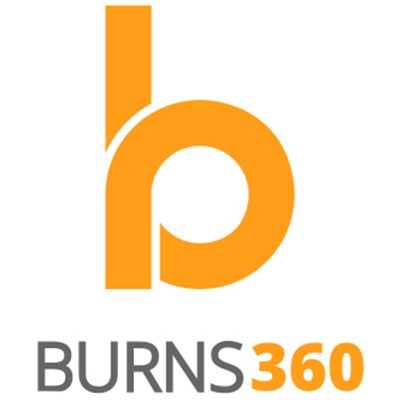
In-House or Agency? Why Success in Marketing Needs Both
Digital Marketing Manager
Burns360
Nothing’s more nerve-wracking than change, right?
At least, that’s how I felt. Stepping into Burns360’s doors for the first time about a year ago, I was a bundle of nerves.
Of course, with any career change, there would be a lot of new responsibilities. But, even more than that, I had a picture in my head of how agencies work. And how different it would be from an in-house, corporate environment.
What would it be like working here? How do communication and approvals work? What’s the protocol for engaging with clients? How do I measure success inside the company and for each client I would work with? Do they have a coffee machine?
Over time, I found answers to all my questions. And, as I found out, each one would be important for our clients’ and my own success—including the coffee which, yes, we do have.
Working in Agency: Defining Measurable Scopes
A little bit of background. I came from a relatively small, tight-knit marketing team in a large corporation. I was responsible for anything that had to do with our website, SEO, project management and even a little bit of development. I used many “tools from the toolbox”, but all with the same goal—to constantly improve our online presence and increase our digital ROI.
In an agency, however, the scope moves from static to dynamic. I now work with a variety of clients, each with specific needs, priorities and deadlines that don’t all happen at the same time. The tools in my toolbox may be the same, but how I use them is strikingly different.
For example, a client may just need to revisit their SEO strategy. My focus would revolve around improving their page copy and images, and measuring the impact of my changes against Google’s metrics. When I notice site improvements, I certainly report back to the client as we work to optimize the site together. But in an agency environment, the client’s business goals always come first: the scope of the SEO work the client wants to have done.
Working within a carefully defined project scope requires a shift in thinking, to say the least. Let’s put it this way—if you compared websites to a house, an in-house team can build and modify their house any way they want to try and make it the best it can be.
An agency team, on the other hand, is brought in by the owners of the house with a project blueprint already in-hand. The project can range from renovating the entire house to just painting a single room.
Either way, both projects are equally exciting because each side of the agency/in-house equation have their own bar for measuring success.
Working in an agency environment, meeting the client’s business goals always come first.Click to tweet
In-Depth View versus Unbiased Perspectives
Coincidentally, in my final year with my previous corporate job, I worked with an agency to rebuild our website. By then, I was approaching my fifth year and was innately familiar with our company’s brand, operational processes, technical systems and everything else in between.
The agency I worked with was a top expert in the content-management system we had our site built on. We hired them for just that function, specifically.
To achieve all of our goals, there was virtually non-stop communication between me and the agency to ensure everyone’s expertise contributed to the final outcome.
When we “butted heads”, it was usually over recommendations that clashed with my deeper knowledge of our corporate culture. But these ongoing back-and-forth, give-and-take discussions actually fueled better outcomes.
A simple example would be if the website should feature a phone number at the top of the site, very visible to visitors, and trackable to identify callers and potential leads. Ninety percent of the time this would be a good and value-added idea.
But not always. A global company must be accessible to its entire consumer base. Displaying a single number with just one country code would detract from the global messaging. So, it was vital for us to find a collective solution (in this case, an online phone network) that would work according to their best practices and our internal requirements.
“How Can We Help You? How Can You Help Me?”
With a little over a year at Burns360, I’m now on the other side of that table. Every day, I work with clients to address their specific projects. Sometimes we have healthy arguments, but ultimately, we work toward a common goal.
The reason I’ve liked working at Burns360 is that we all truly want what’s best for our client, even if sometimes it’s at our own expense. We also believe in complete transparency and are open about any particular issues that would hinder us from doing our job well. If we’re not the right fit for a particular project, we want our clients to hear it from us first.
Successful client/agency relationships are always based on the ability to fulfill a specific need in a way that adds value on both sides of the coin. To make it happen, both teams must respect the relative knowledge and expertise of the other, and engage in an ongoing and open dialogue as each person performs his or her respective duties.
It’s usually a string of simple conversations, but you’d be surprised how much meaning they hold for mutual success. When both parties are equally invested in a desired outcome, and continually share their ideas and insights with each other, the ends don’t only justify the means—the means themselves are always far more effective.


